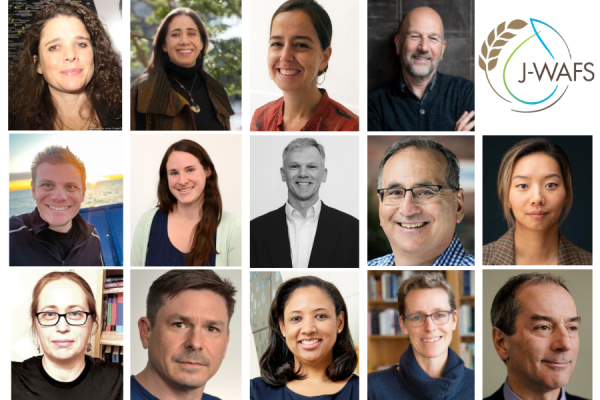Our Research Protecting drinking water from widespread organic contaminants using engineered soil bacteria
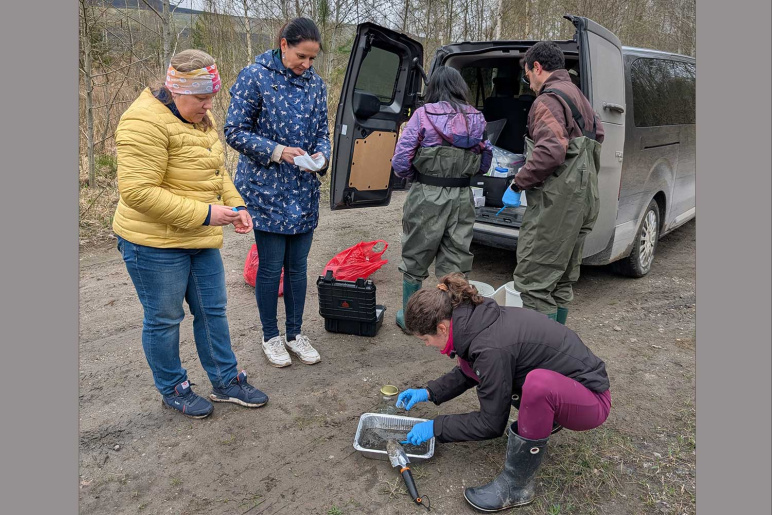
Victoria Chen (MIT) with Yonatan Chemla (MIT), Alīna Reķēna (TalTech), Signe Viggor (University of Tartu), and Merike Jõesaar (University of Tartu) operating their mobile lab out of the back of a van for processing and preserving soil samples.
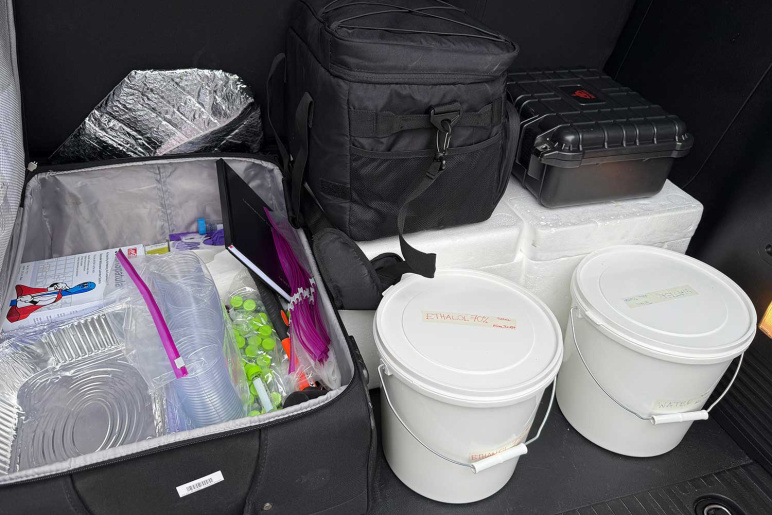
The researchers' mobile lab setup, with sampling cups and tubes; aluminum trays to homogenize samples; ethanol and water buckets for washing equipment. In the bags: sampling tubes prefilled with DNA preservative reagent; previously collected samples kept on ice; jars of samples kept on dry ice for HPLC analysis.
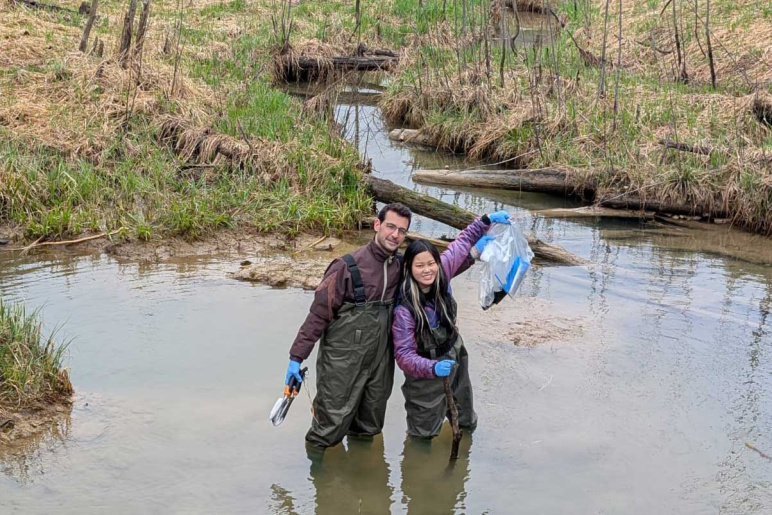
Victoria Chen (MIT) and Yonatan Chemla (MIT) show off a particularly hard-to-get soil sample collected in Väike-Pungerja, Estonia.
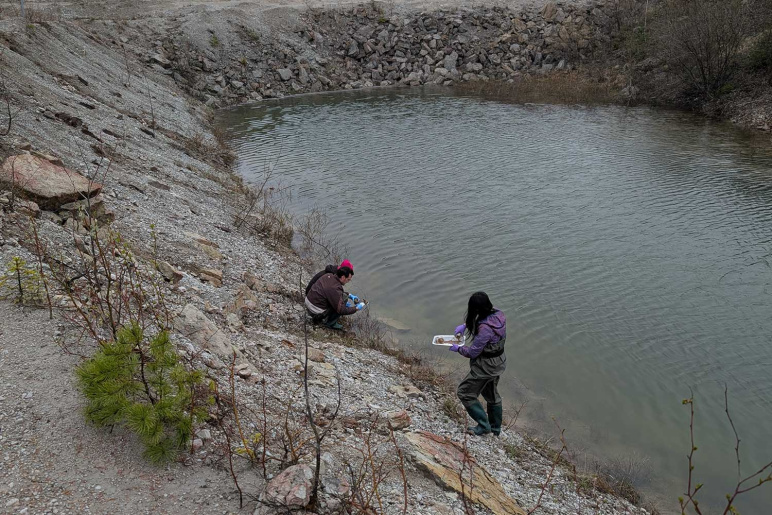
Victoria Chen (MIT), Yonatan Chemla (MIT), and Alīna Reķēna (TalTech) sample a mine ditch in Kiviõli, Estonia.
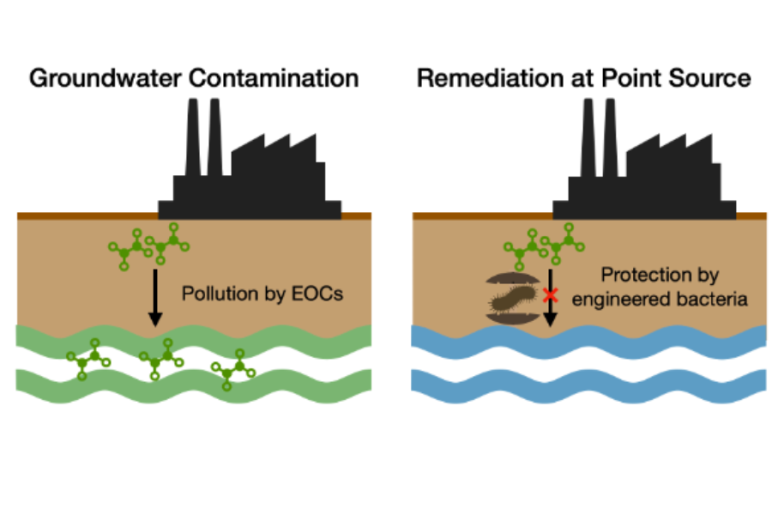
Schematic of proposed microbe- based EOC remediation technology. Photo credit: Victoria Chen (Voigt Lab).
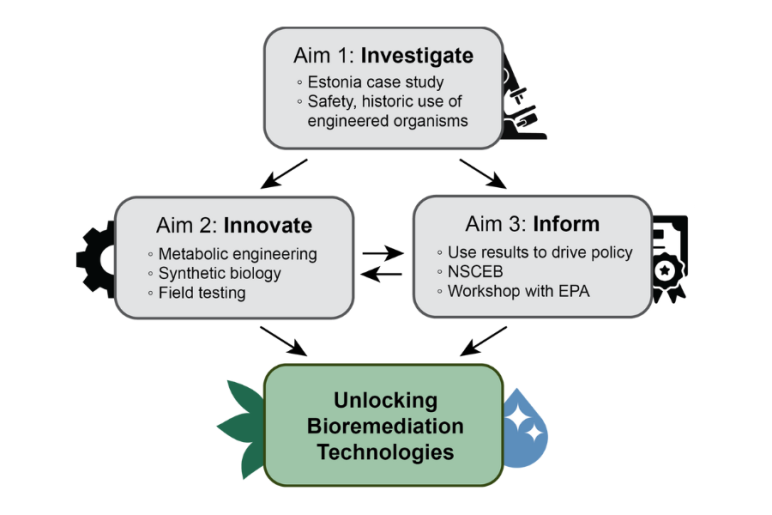
Overview of specific research aims. Photo credit: Victoria Chen (Voigt Lab).
Principal Investigators
Christopher Voigt
- Daniel I.C. Wang Professor of Advanced Biotechnology
- and department head
- Department of Biological Engineering
Kate Brown
- Thomas M. Siebel Distinguished Professor in the History of Science
- Program in Science, Technology, and Society
Victoria Chen
- PhD candidate
- 2025 - 2026 Rasikbhai L. Meswani Fellow for Water Solutions
- Biological Engineering Department
Challenge:
How can we prevent pollution of groundwater by remediating contaminants at their point source?
Research Strategy
- Perform a scientific and historical evaluation of the success of a bioremediation case study involving the first-ever deliberate release of engineered bacteria in order to inform safe engineering strategies
- Develop and test engineered bacteria that can safely and effectively clean up contaminants at pollution point sources such as landfills to safeguard groundwater sources
- Utilize findings to inform policymakers and other stakeholders about biotechnologies involving the release of engineered bacteria to the environment to drive much-needed regulatory reform
Project description
The increasing prevalence of emerging organic contaminants (EOCs) in drinking water, such as bisphenol A (BPA) and benzophenone-3 (BP-3), presents a substantial threat to public health. These EOCs are known for their carcinogenic properties, toxicity to human organ systems, and endocrine disrupting effects. Much of the EOC pollution in drinking water stems from pollution of groundwater, which serves as a primary water source for over 2.5 billion people, by point sources such as railroad tracks, industrial zones, factories, and landfills. Traditional wastewater treatment methods remain unable to address EOCs, as they form harmful disinfection byproducts when EOCs interact with chlorination processes.
The team aims to address this pressing and growing issue by developing a synthetic microbiological solution that will safeguard groundwater sources by deploying engineered bacteria in polluted areas to remediate EOCs at their point source, preventing them from ever reaching groundwater in the first place. The goal is for this research to lead to a scalable bioremediation technology capable of improving water quality for both drinking and agricultural use, and facilitate the responsible development and deployment of engineered bacteria which could revolutionize how we tackle pollution and sustainability challenges in the future.
News
Additional Details
Impact Areas
- Water
Research Themes
- Water Purification & Desalination
- Water Resources & Infrastructure
- Technology & Commercialization
- Economics, Policy, & Practices
Year Funded
- 2024
Grant Type
- Seed Grant
Status
- Ongoing



